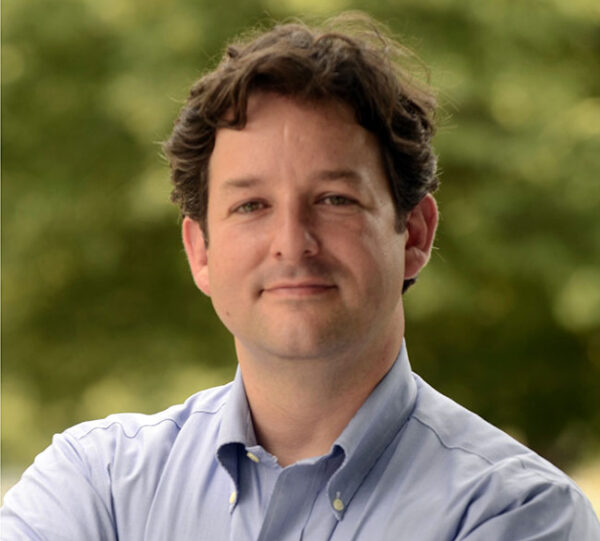 Progressive Voice is a weekly opinion column. The views and opinions expressed in the column are those of the individual authors and do not necessarily reflect the views of their organizations or ARLnow.com.
Progressive Voice is a weekly opinion column. The views and opinions expressed in the column are those of the individual authors and do not necessarily reflect the views of their organizations or ARLnow.com.
By Alfonso Lopez
As last week’s Progressive Voice columnist pointed out, U.S. Senator Tim Kaine continues to be mentioned as a top contender to be Hillary Clinton’s Vice Presidential running mate.
I wanted to share my own perspective of Tim Kaine as one of three Arlingtonians appointed to a Cabinet-level position in his gubernatorial Administration.
My mind is immediately drawn to his response to the terrible tragedy at Virginia Tech on April 16, 2007, when 32 of Tech’s finest were killed and many others wounded.
Governor Kaine had just reached Japan to start an Asian economic development trip when he received word of the shootings. He immediately returned to Virginia and arrived in time to attend the campus memorial convocation for the victims the next day that was broadcast around the world.
Kaine spoke without notes or prepared remarks, quoted scripture and urged the Tech community to hold onto the “spirit of community” that it had shown the world amid such grief. He comforted grieving families and visited the wounded. His empathy and strength brought Virginians from across the Commonwealth together.
If we measure a person by their reaction in moments of extraordinary tragedy and stress, then throughout those horrible days the nation saw in Tim Kaine both a public servant and a leader of great courage, empathy and determination to do right by the victims and their families, Virginia Tech and our Commonwealth.
I was fortunate to be selected by Governor Kaine to serve as the Director of the Virginia Liaison Office in Washington, D.C. In that position, I was responsible for coordinating Congressional and Federal Affairs on behalf of the Governor and more broadly, Virginia’s interests.
In that position, I saw Governor Kaine working closely with Congress and both the Bush and Obama Administrations — fighting for key infrastructure projects, legislative initiatives, and federal grants to improve the lives of Virginians.
He successfully advocated for the expansion of conservation easements and the preservation of open space, increased educational opportunities, and modernized the state’s workforce development initiatives. He championed federal recognition of Virginia’s Native American tribes and secured funding to clean up the Chesapeake Bay.
To move Virginia forward, Governor Kaine worked across the aisle to further the goals of his Administration and secure accomplishments that provided real progress for his constituents.
Here are some examples:
- At a critical point in the debate of the Post-9/11 GI Bill, Governor Kaine organized bipartisan gubernatorial letters in support of the legislation to help it become law.
- He worked closely with Virginia’s Congressional delegation to ensure the Navy did not transfer a nuclear-powered aircraft carrier (and thousands of attendant jobs) from Norfolk to Florida.
- As Chair of the Southern Governors’ Association, he negotiated a broad regional initiative to address the impacts of climate change.
- Working in a bipartisan manner, Kaine led Virginia’s successful effort to reverse a Federal Transit Administration ruling and secure final federal approval and funding for the Silver Line that will extend to Dulles Airport and beyond – a major boost to the Northern Virginia economy.
During his years as Governor, Virginia received accolades as the “Best State for Business,” the “Best Managed State” and the “Best State to Raise a Child.” He recruited several Fortune 500 companies to relocate to Virginia and secured more than $13 billion in new investment.
The accomplishments of the Kaine Administration resonated with Virginia voters, who elected him in 2012 to the U.S. Senate– where he continues to serve with distinction.
The talk about Senator Kaine as a potential VP is happening for a reason. Simply put, he is experienced, effective and above all authentic.
Virginia residents, business leaders, fellow Members of Congress and senior Administration officials echo these sentiments.
They see, as I saw, that he is a tireless public servant who is respected on both sides of the aisle for his vision, intelligence, clarity, friendliness and ability to get folks from all points of view to work together. Genuine, pragmatic and focused on results, he has an infectious optimism. He looks at every decision from a people perspective.
And through all his success, he treats people with respect — an aspect of his personality that shines through in all of his interactions.
In a world that sometimes feels like it has lost its way, the nation would benefit greatly from someone like Tim Kaine.
Alfonso Lopez represents the 49th District in the Virginia House of Delegates and serves as the Democratic Whip. He also served as the Director of the Virginia Liaison Office in Washington, D.C. for former Governor Tim Kaine.


